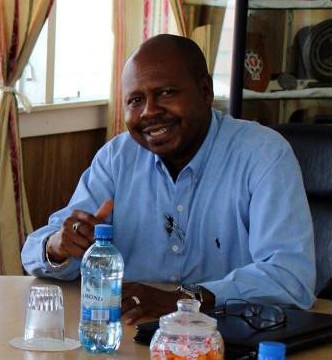Acting Chief Executive Officer (CEO) of the Guyana Power and Light (GPL), Colin Welch arrived at the company in 2012 without any experience at a utility.
This was revealed in a letter in today’s edition of Stabroek News by former Prime Minister Sam Hinds who defended actions he took during that period and called for a recognition of the progress that GPL had made.
Welch became a figure of controversy after the now severed GPL CEO Bharat Dindyal clashed earlier this month with him openly at a GPL facility. That confrontation was one of the factors which eventually led to Minister of Public Infrastructure David Patterson sacking Dindyal. Days later, GPL announced that Welch had now been elevated to the post of acting CEO pending a permanent appointment.
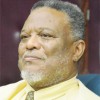
Hinds’ disclosure that Welch had no utility experience and that he had been given a poor evaluation by Dindyal will raise further questions about the decision to elevate him.
The former Prime Minister, who had responsibility for the power sector for 23 years, explained in the letter how Welch arrived at GPL.
“Sometime in 2012, Mr Welch was introduced to me as a Guyanese who had studied at Harvard, had worked at major US companies and who was keen to contribute his expertise and experience in management to his country, specifically at GPL. Mr Welch although he had no utility experience, seemed to be just what GPL needed. He could be a great addition to the executive management level where there was a shortage of numbers and everyone seemed too much stuck in hands-on day-to-day work. I requested the Chairman to negotiate with Mr Welch with intent to hire him, seeking the best (lowest) acceptable compensation package.

“The first appraisal of Mr Welch by the CEO (Dindyal) was blistering. I ruled that it was too early to make such final determinations. Mr Welch should have more time to catch his feet.”
Hinds further said that sometime subsequently, Welch in focusing on loss reduction had raised with the Human Resources Manager the propriety and procedures of a high level appointment in the Loss Reduction Division. Not obtaining a response to his satisfaction, Hinds said that Welch sent him a copy of his letter which he (Hinds) requested the board to investigate and report on. “The board apparently in a reflex action, replied that the matter should not have been brought to my attention as yet. I replied that even so I wanted a response to the substance at issue. I learnt later that the appointment was reversed.
“With this background, I can understand the strong feelings and passionate actions of this Deputy CEO as well as the CEO. It might have been too great a challenge for the Human Resources Manager to have arranged things to the sufficient satisfaction of the two parties and to have avoided that confrontation”, Hinds said.
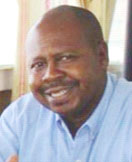
The confrontation that Dindyal and Welch had earlier this month related to attempts by Welch to have two senior GPL managers removed from the premises with the aid of the police. Dindyal intervened on two occasions to stop this and it was during one of these that there was a heated exchange in which Dindyal used profanity and referred to Minister Patterson in a disparaging manner. A video of this confrontation ended up on social media.
And for the first time since the matter surfaced in public, Hinds confirmed that he gave no authorization for a pay raise for Deputy CEO (administration) Aeshwar Deonarine. Deonarine’s paying of himself $27m as the retroactive difference between his pay and Welch resulted in Patterson sending Deonarine on leave and handing the matter over to the police. Deonarine has since signalled that he will repay the money.
Hinds in his explanation said “Early this year the board sought my approval to raise the pay of the Deputy CEO Admin (Deonarine) to that of the Deputy CEO Operations (Welch) saying that there might have been a promise to do so. I pointed to the fact that by all accounts the Deputy CEO Operations would be let go at his next appraisal and what would we do then? Reduce the pay? Up to the time of the ending of my mandate I did not approve the increase”.
Hinds also said he was unaware that approval had been given for the retroactive payment of higher board fees. Higher fees had been claimed by board member Carvil Duncan and this matter has now also been handed over to the police.
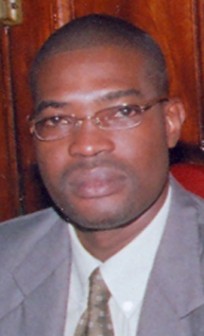
Said Hinds: “Our cabinet had been repeatedly resistant to generally raising board fees from where they were earlier pegged. Eventually, earlier this year, new increased levels were set, payable from the current date. The question of arrears was raised but to my knowledge remained open up to the time of the ending of my mandate”.
Hinds also provided insight into the salary and benefits of Dindyal which at the reported annual figure of $74m has stirred public consternation.
Hinds noted that both Dindyal and another senior manager Robin Singh had been let go on the privatization of GPL in 1999 and “had to find their way as best as they could”. When the core partner walked away, Hinds said that GPL called on both Singh and Dindyal who were then heading electricity utilities in small islands in the Caribbean to drop whatever they were doing and return home.
“We committed to fully compensating them, matching and even bettering whatever they were then receiving as foreign North American nationals. A few years ago I wrote the board affirming the North American compensation package of the CEO, which was particular to him. At the same time our not so long term target must be to fill the post of the CEO (and all other executive managers) with ‘Guyanese” receiving compensation packages which would be in line with the compensation packages of executives in other Guyanese companies, and well related to the compensation of the unionized employees in GPL. We had to get past the forced practice of having to pay whatever we had to pay, which payment would be particular to the individuals”, Hinds said.
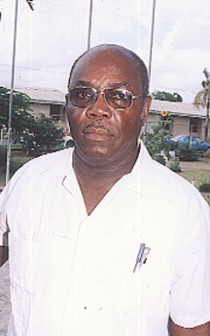
Dindyal had been negatively evaluated by the GPL board last year which had subsequently told Hinds that it would not support a renewal of his contract. Yet, Hinds kept on Dindyal without contract.
Hinds in his letter said “Towards the end of 2014 the board did come to me with the failing grade assessment of the CEO Bharat Dindyal. I conceded to the board that there was nothing factual which I could fault in their assessment but with the projects almost completed at that time, let’s look back and see where things could realistically have been done differently and better.”
He added “It was clear that the relationship between the CEO and the board was beyond mending; an orderly separation was to be contemplated. I set a period of six months to one year for a separation, both sides considering and developing options within the first six months which would be implemented any time during the second six months, hopefully at a time of mutual convenience.”
